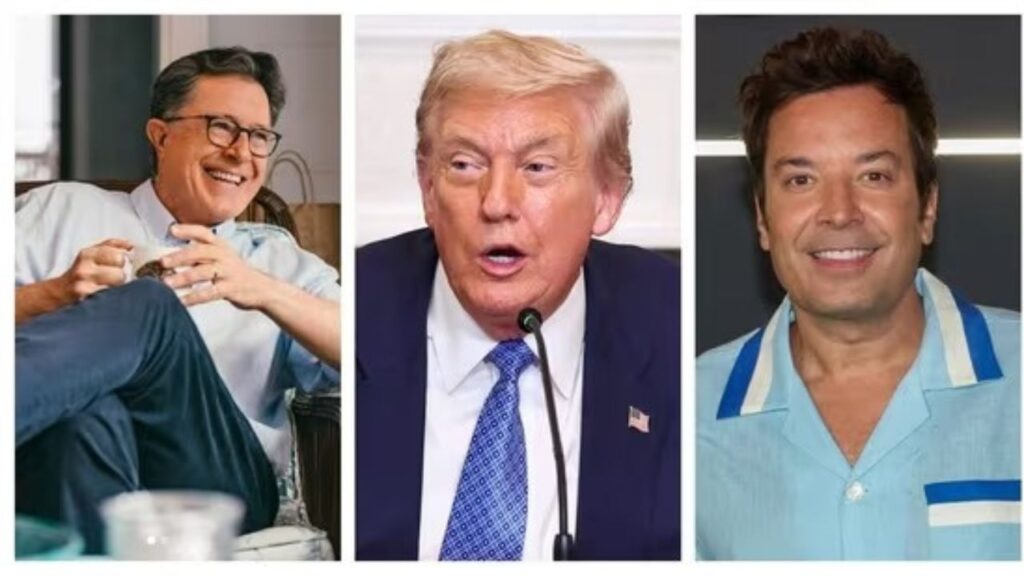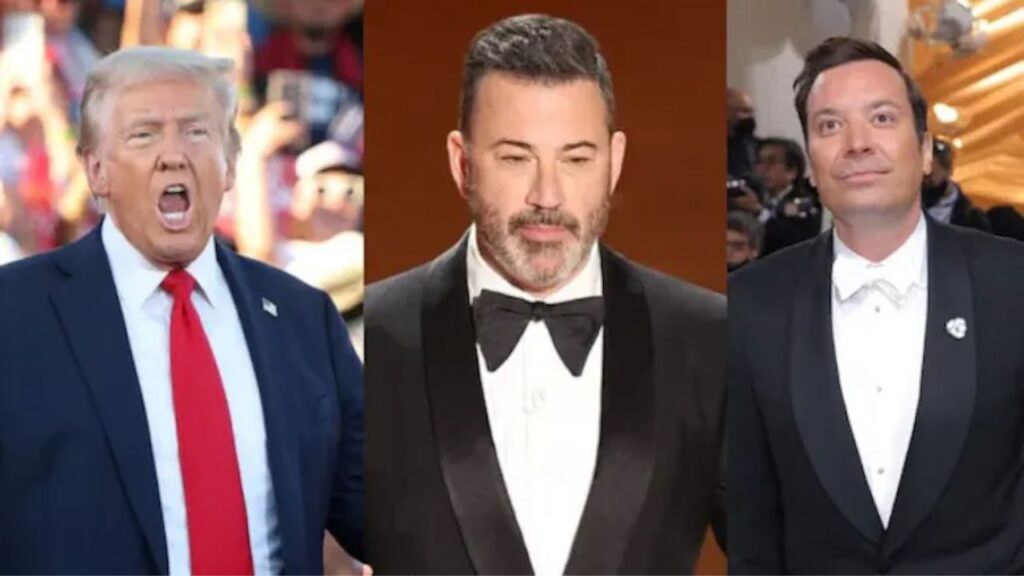“Only Places He Didn’t Charge”: Late-Night Comics Mock Trump’s Global Tariff Spree Against India and 90+ Countries
American late-night television hosts Stephen Colbert and Jimmy Fallon have unleashed sharp criticism against President Donald Trump’s sweeping tariff policies, particularly targeting his recent decision to impose a punishing 50% duty on Indian imports.
During Thursday’s “The Tonight Show,” Jimmy Fallon delivered a biting monologue about Trump’s extensive tariff campaign, noting that the president has now imposed additional duties on over 90 countries, including Canada, Brazil, and India. In his characteristic style, Fallon quipped that “the only places Trump didn’t charge are North Korea and Epstein’s island” – a pointed reference to sex offender Jeffrey Epstein’s notorious private retreat.
The comedy didn’t stop there. Fallon warned viewers about the potential economic consequences, explaining that the 50% tariffs on Brazil could dramatically increase prices for tropical fruits like bananas, mangoes, and pineapples. With typical late-night humor, he joked that “Edible Arrangements are safe, as long as you don’t hike the price of cantaloupe and long toothpicks.”
Stephen Colbert joined the comedic assault during his Saturday show, focusing specifically on the impact of Trump’s Indian tariffs. He pointed out that the 50% duty would raise prices on essential medical supplies including gauze, bandages, and wadding. Colbert then launched into a mock product pitch for “Steve’s wad,” joking about Americans’ desperation for affordable medical supplies.

The India Tariff Controversy
The comedy stems from Trump’s recent announcement of an additional 25% tariff on US imports from India, effectively doubling the total duty to 50%. The president justified this penalty as punishment for India’s continued energy relationship with Russia, despite ongoing geopolitical tensions.
Trump has intensified pressure on New Delhi to sever its Russian oil imports, criticizing the trade relationship between the two nations. The stakes are significant: Russia supplies approximately 35% of India’s energy needs and accounts for nearly 60% of the Indian armed forces’ military inventory.
India has pushed back against the American criticism, defending its energy purchases as necessary for national interests. New Delhi has also highlighted what it sees as American hypocrisy, pointing out that the United States continues importing uranium hexafluoride, palladium, fertilizers, and various chemicals from Russia while penalizing India for similar trade relationships.
The tariff battle represents a broader tension in US-India relations, with India arguing that it’s being unfairly singled out while other nations maintaining Russian energy ties face no similar penalties from the Trump administration.






